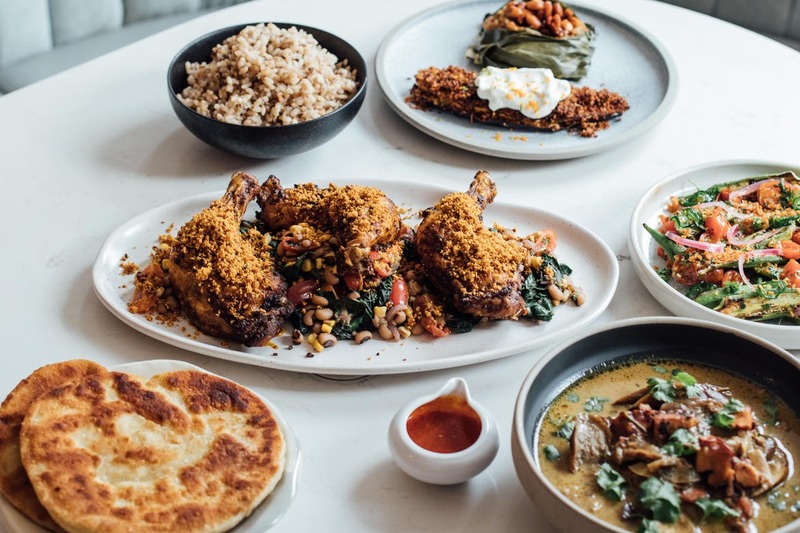
You, Me & Sara, a popular chef collaboration series from Sara Restaurant, is joining forces with Chef Rachel Adjei to give you a taste of African cuisine.
Adjei generated this menu to bring awareness to the Abibiman Project, which is a food concept that celebrates the 'diverse cultures and cuisines from the African continent and Black diaspora.' By incorporating a range of ingredients and palates into her dishes, Adjei's goal is to connect people with cuisines, flavours, and ideas from all over Africa.
"The story behind the food is just as important as the food on the finished plate," the restaurant wrote on their website. In other words, each dish comes from a different origin and holds a particular significance, which is something this collaborative meal highlights to its fullest extent.
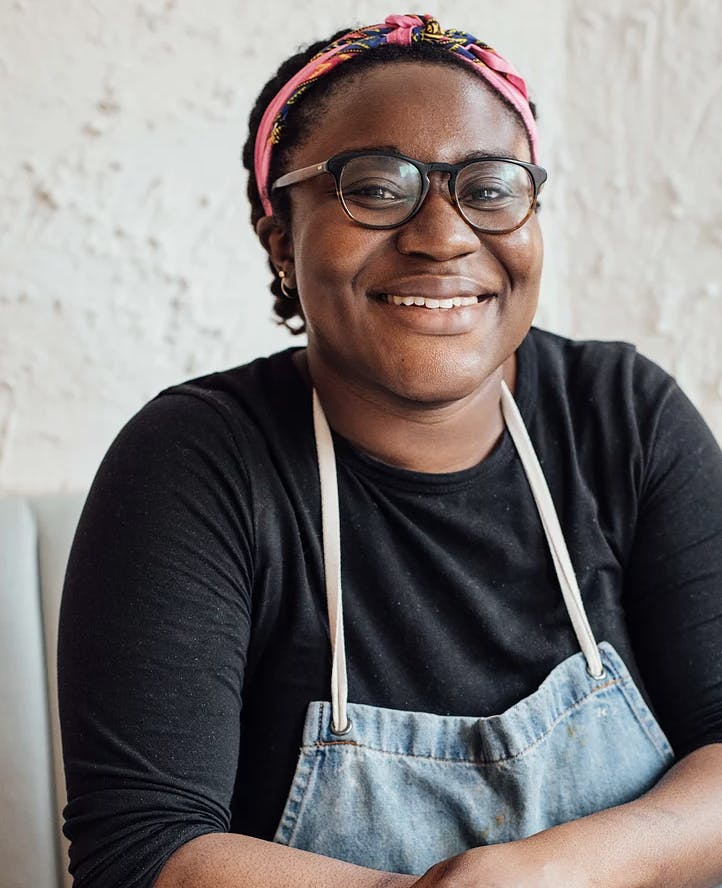
Additionally, this collaboration speaks to the racial injustices that the Black community faces. To support those in need, Adjei is giving all of her proceeds to Black Food Toronto which is an initiative organized by the Afri-Can Food Basket. Black Food Toronto supplies members of the African, Caribbean and Black (ACB) community dealing with food insecurity with fresh produce, vegan meals and non-perishable items.
Priced at $60 per person, this set meal comes with four courses. The first is the Bamya Salad, which includes okra, heirloom cherry tomatoes, red onions, jalapenos, garlic and ginger cardamom dressing. Okra is a vegetable that is indigenous to Eastern Africa and is widely enjoyed in many regions and cuisines across the continent and the world. An okra salad was popularly featured in a previous pop-up menu, but this specific dish is inspired by a North-Eastern African and Middle Eastern style okra stew known as 'Bamya'. In this salad, the okra is charred, which brings out its earthy tones.
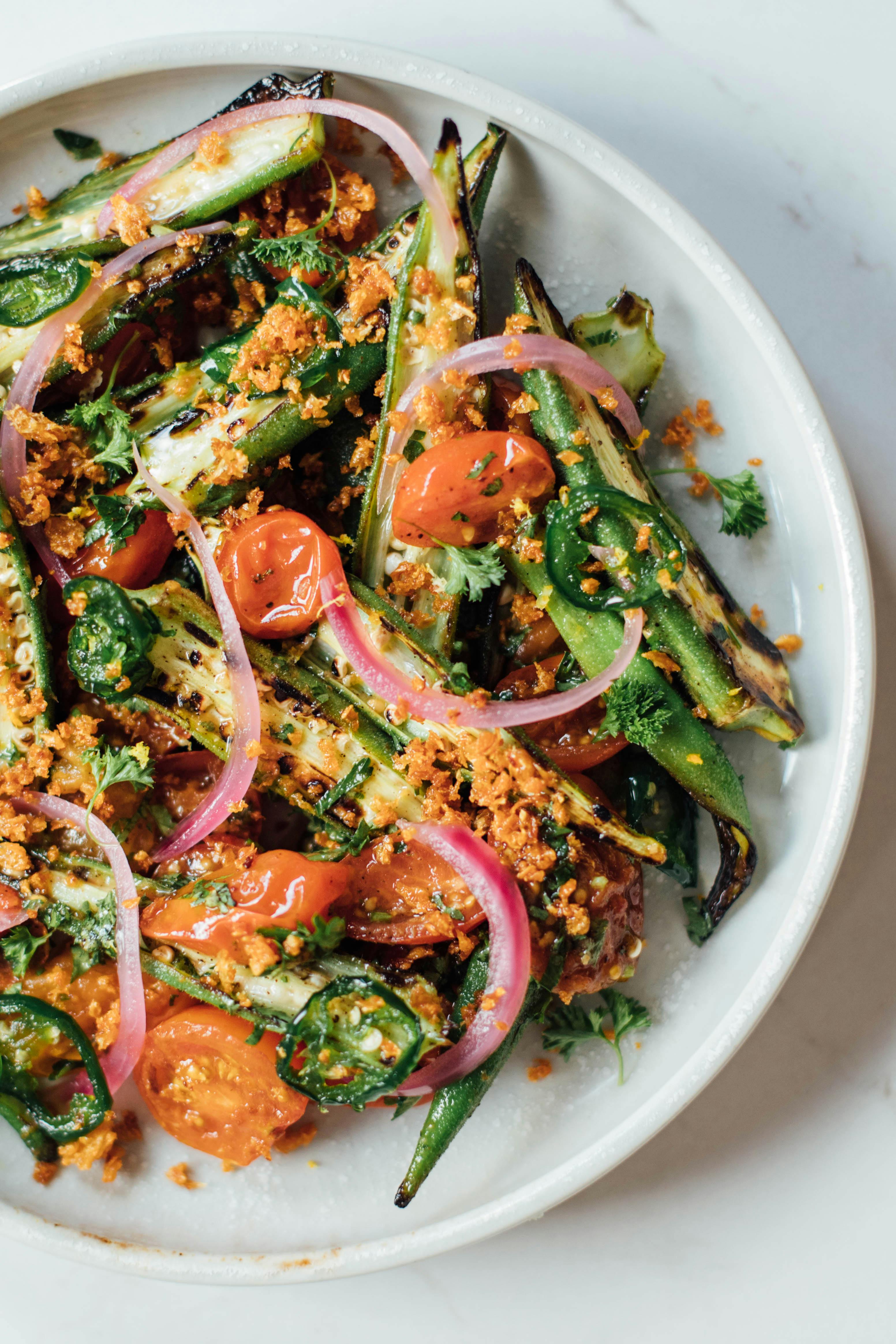
The second course is Massale Octopus Curry, which is a popular meal served in a small East African country on the Indian Ocean called Seychelles. The ingredients consist of massale spice, eggplant, octopus that is braised in a coconut cream and tamarind curry base, and topped off with cilantro. Octopus is commonly consumed on the island nation of Seychelles, and it becomes tender once it is filled with the curry flavour during the slow-cooking process. The warm spices of clove, nutmeg and cardamom are influenced by Indian cultures, and the dish comes with a side of traditional East African and sub-continent Indian style flatbread called chapati.
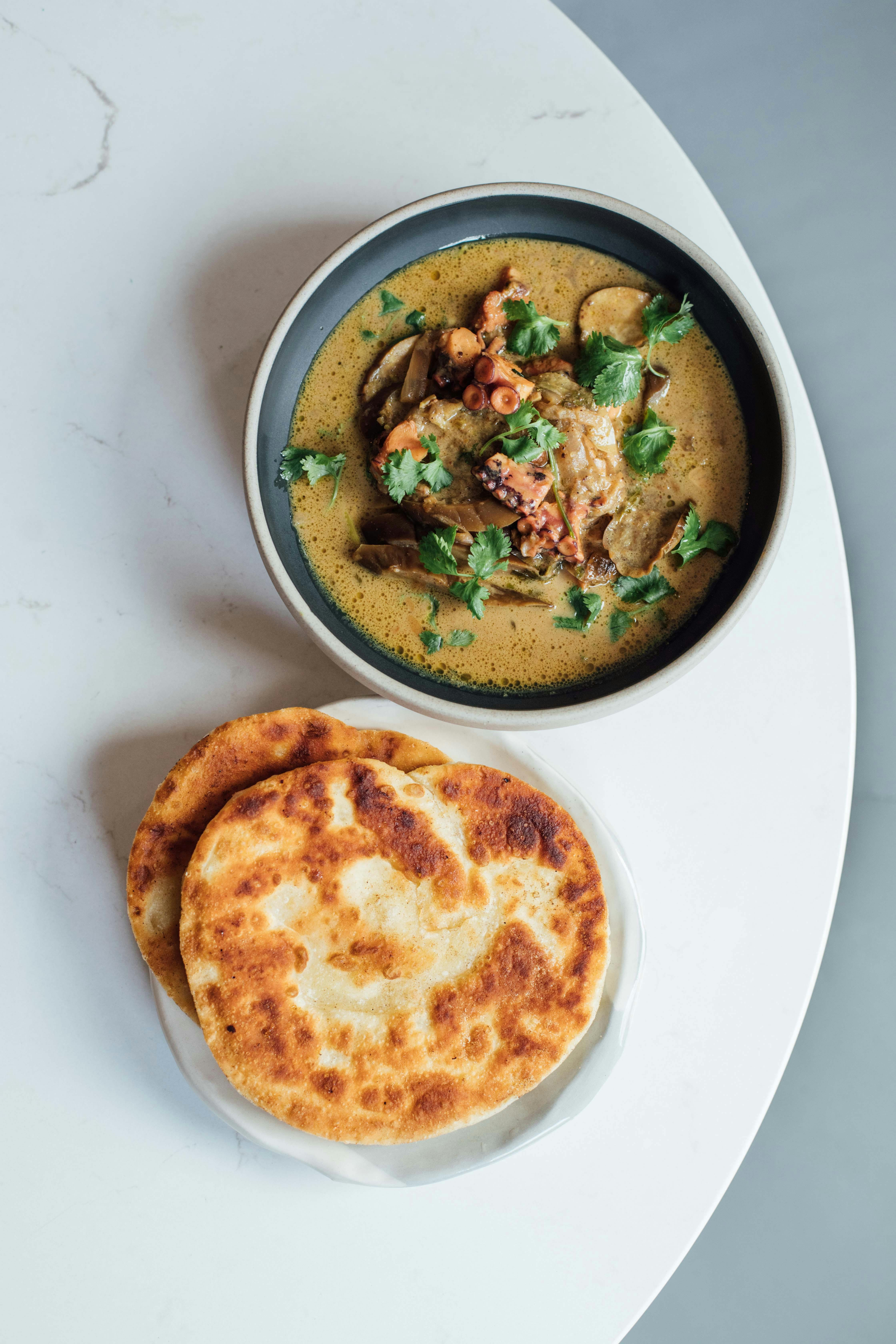
The third course, Chicken Muamba with Farofa, is commonly eaten in Central Africa and influenced by Congolese and Angolan recipes. The roasted chicken legs are covered in Muamba spices and red palm fruit oil and accompanied by a sauce made with chicken stock, tomato paste, scotch bonnet and lemon.
The farofa is a side made from cassava meal, which is fried in red palm oil with onions, sweet peppers and peanuts. Farofa is often seen in Brazilian cuisine, and it is suggested that it was brought to Angola by slaves who were taken to Brazil from Central Africa, then once again returned to Angola in later generations.
This dish is also served alongside rice and Githeri, which is a vegetable dish that comes from Kenya and is made with boiled beans and corn. The rice belongs to a certain variety from South East Nigeria known as Ofada. This short-grain rice is red and white veined, with a grassy flavour and slight bitterness. Adjei also added collard greens, which is often seen in East African meals.
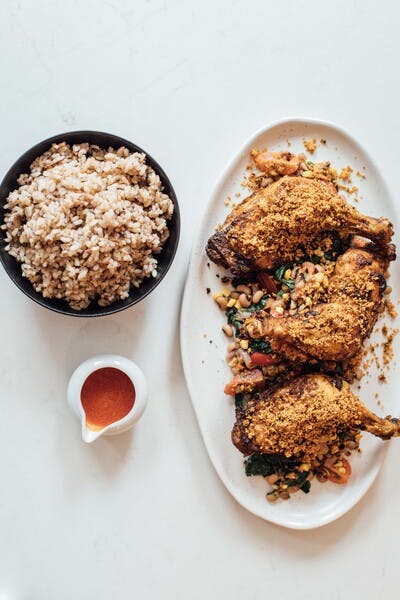
For dessert, a Plantain Akwadu and Moringa Pumpkin Cake round out this special offering. Although desserts are not commonly seen in African cuisines, as a pastry lover, Adjei could not help but include some sweet touches at the end of the meal. For one of them, Adjei chose to experiment with plantain, which is a familiar component in African dishes.
Plantains originated in South East Africa and over time travelled to continental Africa. Plantains bring a starchy element to meals and they can be prepared in a variety of ways. The starchy flavour and firmness of plantains stay consistent even after they ripen, as opposed to bananas, which sweeten during ripeness.
The Plantain Akwadu is made with black plantain, coconut and orange. Akwadu comes from Equatorial Guinea and is mainly enjoyed during breakfast or dessert. The plantain is baked with orange juice and brown sugar, with the skin left on. It is finished off with a coconut orange whipped topping, which is a Westernized touch.
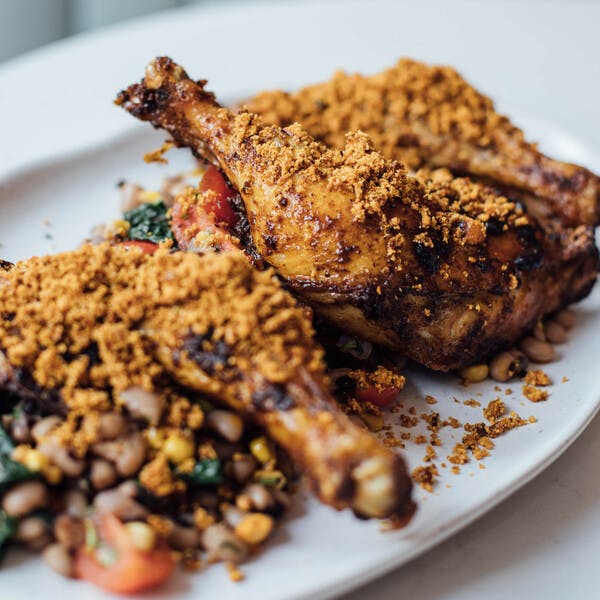
Moringa is considered a superfood in Eastern Africa because of its medicinal properties. This plant has an earthy flavour and can be compared to the taste of matcha combined with the sweetness of green beans. In this dessert, moringa is paired with pumpkin, which is an important component in African cultures. Pumpkins are used to roast, put in stews and porridges, and even used to make musical instruments. The specific variety of pumpkin used in this dish is a Jamaican pumpkin, which mimics the nutty flavour of butternut squash.
This complex yet delicious pastry has numerous layers, including, moringa sponge, caramelized moringa chocolate, pumpkin curd, moringa ganache, dragees pumpkin seeds and tart pumpkin brittle. This dessert is accompanied by West African calabash nutmeg and lemon.
To sip on, there is a cocktail with vodka, pineapple, lime and campari. There is also an option to include add ons to your order, which include a bissap tea mix, Cafe Trouba coffee beans, a Dukkah chocolate bar and a puffed amaranth and smoked sea salt chocolate bar.
Pre-orders are now open, and orders can either be picked up or delivered on May 14 or May 15 from 5 p.m. to 8 p.m.









